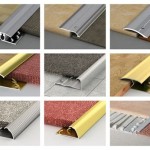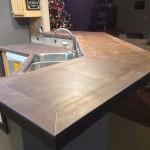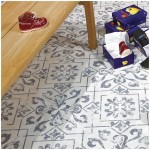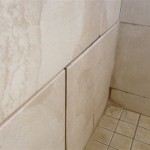The Incredible Benefits of Stone Veneer Tiles
Stone veneer tiles offer a compelling alternative to natural stone for various construction and renovation projects. These manufactured products replicate the aesthetic appeal of natural stone while providing significant advantages in terms of cost, weight, installation, and sustainability. Understanding these benefits allows informed decisions regarding material selection for interior and exterior applications.
Cost-Effectiveness and Affordability
One of the primary drivers for choosing stone veneer tiles is their cost-effectiveness. Natural stone extraction, processing, and transportation contribute to a substantial price tag. In contrast, stone veneer tiles are manufactured using readily available materials and efficient production processes, resulting in a significantly lower initial cost. This price difference allows for achieving the desired stone aesthetic on a budget, opening up design possibilities that might be financially prohibitive with natural stone.
Beyond the initial purchase price, installation costs also contribute to the overall expenditure of a project. Natural stone, due to its weight and variability in shape, often requires specialized equipment and skilled labor for installation. This can significantly increase the overall cost. Stone veneer tiles, being lighter and more uniform, are easier to handle and install, reducing labor costs and potentially enabling DIY installation for experienced homeowners. The reduced weight also minimizes the need for structural reinforcement, further contributing to cost savings in certain applications.
Long-term maintenance costs also favor stone veneer tiles. Natural stone, depending on its type and environment, can be susceptible to weathering, staining, and erosion, requiring periodic cleaning, sealing, and repair. High-quality stone veneer tiles are manufactured to be highly durable and resistant to these environmental factors, reducing the need for frequent maintenance and associated costs. This long-term cost advantage makes stone veneer tiles a financially prudent choice for many homeowners and builders.
Lightweight and Easy Installation
The reduced weight of stone veneer tiles compared to natural stone presents a substantial advantage in terms of handling and installation. Natural stone can be extremely heavy, requiring specialized lifting equipment and multiple workers to maneuver. This weight also puts a strain on the underlying structure, potentially requiring reinforcement to support the added load. Stone veneer tiles, being significantly lighter, can be easily handled by a single worker and often eliminate the need for structural modifications. This simplifies the installation process and reduces the overall time required to complete the project.
The uniformity in shape and size of stone veneer tiles further facilitates the installation process. Natural stone often comes in irregular shapes and sizes, requiring careful cutting, shaping, and fitting to achieve a desired pattern. This process is time-consuming and requires skilled craftsmanship. Stone veneer tiles, on the other hand, are manufactured to precise dimensions, ensuring a consistent and predictable fit. This simplifies the installation process, reducing the need for extensive cutting and shaping, and allowing for quicker and more efficient project completion. Many stone veneer products also interlock, creating a seamless appearance and simplifying the alignment process.
The lighter weight and ease of installation of stone veneer tiles expand the range of potential applications. They can be applied to surfaces that might not be able to support the weight of natural stone, such as interior walls, existing structures, and even mobile homes. This versatility allows for incorporating the aesthetic appeal of stone in a wider variety of settings and projects. The simplified installation process also makes stone veneer tiles a viable option for DIY projects, empowering homeowners to enhance their living spaces without incurring the expense of professional installation.
Durability and Low Maintenance
Stone veneer tiles are engineered to be highly durable and resistant to the elements. Modern manufacturing processes utilize high-strength concrete mixes and advanced curing techniques to create products that can withstand harsh weather conditions, including extreme temperatures, freeze-thaw cycles, and prolonged exposure to sunlight. This durability ensures that the stone veneer retains its aesthetic appeal and structural integrity for many years, minimizing the need for repairs and replacements. The resistance to weathering also contributes to the long-term cost savings associated with stone veneer tiles.
The low-maintenance requirements of stone veneer tiles are another significant benefit. Unlike natural stone, which can be porous and susceptible to staining, high-quality stone veneer tiles are typically sealed or treated to resist moisture absorption and the accumulation of dirt and grime. This makes them easy to clean with simple soap and water, eliminating the need for specialized cleaning products or techniques. The resistance to staining also ensures that the stone veneer retains its original color and appearance for a longer period, reducing the need for periodic sealing or staining.
Furthermore, stone veneer tiles are often resistant to fading caused by ultraviolet (UV) radiation. This is particularly important for exterior applications where the stone veneer is exposed to direct sunlight. The UV resistance ensures that the color and appearance of the stone veneer remain consistent over time, preventing unsightly discoloration and maintaining the overall aesthetic appeal of the installation. This durability and low-maintenance characteristic make stone veneer tiles a practical and attractive choice for both residential and commercial projects.
Design Versatility and Aesthetic Appeal
Stone veneer tiles offer a wide range of design options to suit various architectural styles and aesthetic preferences. They are available in a variety of colors, textures, and patterns, replicating the look of different types of natural stone, including fieldstone, river rock, limestone, and slate. This versatility allows for creating a custom look that complements the surrounding environment and enhances the overall design of the project. Whether a rustic, traditional, or contemporary aesthetic is desired, stone veneer tiles can provide the desired visual impact.
The ability to replicate the look of natural stone is a key advantage of stone veneer tiles. Manufacturers utilize advanced molding techniques and realistic coloring processes to create products that closely resemble the natural stone they are intended to emulate. This allows for achieving the aesthetic appeal of natural stone without the associated cost and installation challenges. The consistent color and texture of stone veneer tiles also ensure a uniform and predictable appearance, which can be difficult to achieve with natural stone due to its inherent variations.
Beyond replicating natural stone, stone veneer tiles also offer design flexibility in terms of application. They can be used for a variety of interior and exterior projects, including accent walls, fireplaces, backsplashes, foundations, and landscaping features. This versatility allows for incorporating the beauty of stone into various design elements, creating a cohesive and visually appealing environment. The ability to cut and shape stone veneer tiles also allows for creating custom designs and patterns, further expanding the creative possibilities.
Environmental Considerations and Sustainability
The production of stone veneer tiles generally has a lower environmental impact compared to the extraction and processing of natural stone. The manufacturing process typically utilizes readily available materials, such as concrete and aggregates, which can be sourced locally, reducing transportation costs and associated emissions. Additionally, the production of stone veneer tiles often generates less waste compared to the quarrying of natural stone, which can result in significant amounts of unusable material.
The lighter weight of stone veneer tiles also contributes to their sustainability. Reduced transportation costs and emissions are associated with the lighter weight of the product. The ease of installation also reduces the need for heavy equipment and specialized labor, further minimizing the environmental impact of the project. The potential for DIY installation also eliminates the need for professional installers, reducing fuel consumption and labor costs.
Furthermore, some manufacturers of stone veneer tiles are committed to sustainable practices, such as using recycled materials in their products and implementing energy-efficient manufacturing processes. Choosing stone veneer tiles from these environmentally conscious manufacturers can further reduce the environmental footprint of the project. The longevity and durability of stone veneer tiles also contribute to their sustainability, as they require less frequent replacement compared to other building materials.
The Ultimate Guide To Stonecraft Stone Veneer Schoenherr Roofing

Ppt Some Benefits Of Exterior Stone Cladding Powerpoint Presentation Id 11679449

Manufactured Stone Veneer History Casa Di Sassi

Exterior Stone Veneer Advantages Style Options Evolve

Why Stone Veneer Siding Is An Investment In Lasting Quality Solutions Maine

Architecture Natural Stone Veneer

Development Process Of Manufactured Stone Veneer Casa Di Sassi

What Is Stone Veneer Faqs And Everything You Need To Know

Amazing Stone Veneer Ideas For Exteriors 5 Photos

What To Know About Installing Stone Veneer Wall Cladding
Related Posts








